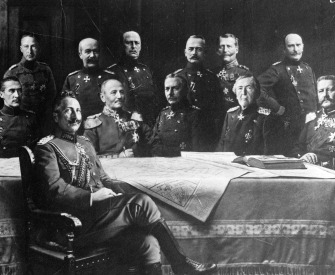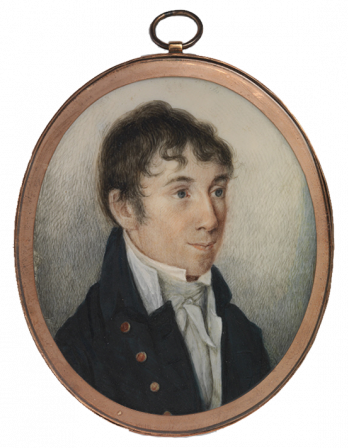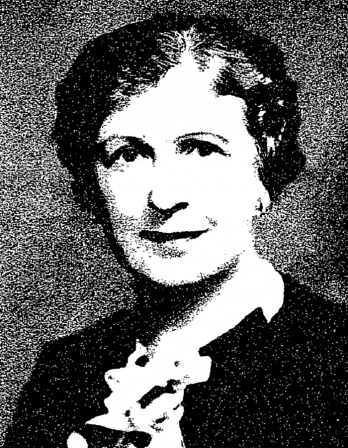[An apartment. Harriot Montague and Emily Lovegrove seated on a sofa.]
Harriot: Well, Emily, although I have confided to you that this little heart of mine beats only for Alberto Stanhope, yet you still remain as profound as a pedant who studies obscurity, or as close as Olivia in the Good Natur’d Man. Come, child, you had better make a confession.
Emily: Dear Harriot, permit me to be a miser of my woes! I would slide through life performing my little part without observation, and—
Harriot: [humorously putting her hand on Emily’s mouth] For heaven’s sake, Emily, be not thus humble! Without observation, say you! Why, I would rather be paragraphed in the newspaper than not distinguished at all.
Emily: Paragraphed in the newspaper!
Harriot: Yes, my dear, although said paragraph should hold me up in the most ridiculous point of view!
Emily: I cannot conceive of this!
Harriot: Why child, a single scribbler, scratching his malicious noddle, may fabricate his abuse, and the cynic has only to preface his invidious production by the little comprehensive monosyllable we think and we wish, while he thus hands my name to thousands, who would not otherwise have known that I had an existence.
Emily: Well, but with the knowledge of your existence, they would at the same time receive an impression that would not be to your honor.
Harriot: Yes, Emily, but their curiosity would be called into action—it would impel them to inquire. I should come out an innocent sufferer, be allowed my full share of merit, and acquire a prodigious deal of consequence. Ha ha ha! I protest, the very idea is enchanting.
Emily: Mad girl! But however you may divert yourself, I still insist that were I to be publicly traduced, I should never enjoy peace afterward!
Harriot: Then you would be very irrational, my dear, for envy is a powerful stimulus to the misanthropic mind, and merit is ever the mark at which it aims its most envenomed shafts.
From The Traveler Returned. Born in Gloucester, Massachusetts, in 1751, Murray was a writer and an early advocate for women’s rights. Her essay “On the Equality of the Sexes” predates by a year Mary Wollstonecraft’s A Vindication of the Rights of Woman. In 1794 a new theater in Boston put out a call for plays by American writers. Murray, under a pseudonym implying male authorship, submitted The Medium, or Virtue Triumphant. It was produced a year later, the first work by an American to appear on a Boston stage. Her second play, The Traveler Returned, appeared the following year.
Back to Issue




